We did find one advantage of shale gas when considering oil shale gas advantages and disadvantages vs biogas! So, welcome to the great debate between oil shale gas, and biogas.
As someone who has studied many difficult comparisons, I understand that every scenario has advantages and disadvantages. It's no different when it comes to fossil fuel versus renewable energy sources, as in this case.
Abundant, But At What Cost? The Pros and Cons of Oil Shale Gas
Let us begin with oil shale gas. This fossil fuel is contained in sedimentary rocks and can be exploited using a technique known as fracking. One of the most significant advantages of oil shale gas is its abundance. According to some estimations, the United States has enough oil shale gas to cover its energy demands for the next century.
But, as you know, I'm not one to avoid discussing the dangers of going down the easy route. And there are major climate change concerns associated with fracking. But, forget those for a minute and fracking has the potential to:
- trigger earthquakes,
- damage water supplies, and
- emit methane, a powerful greenhouse gas, into the sky.
- Not to mention that it is a finite resource that will eventually deplete.
Sustainable Energy For A Sustainable Future? The Pros and Cons of Biogas
How about biogas?
The anaerobic digestion of organic materials such as food waste, agricultural waste, and sewage sludge produces this renewable energy source.
One of the most significant advantages of biogas is its sustainability. We can continue to produce biogas as long as we generate waste.
However, like with every adventure, there are certain drawbacks. Biogas production can be costly and takes up a lot of space. Furthermore, the feedstock used in biogas production must not ever compete with food crops.
That would be problematic not only in locations where food security is a concern but also might conceivably raise the cost of food for all. That is no part of existing government plans for increased biogas production and never would be allowed after the inevitable public outcry against it became known.
Choosing Your Energy Source
So, which is superior? It depends on the situation, just like any good adventurer. Oil shale gas may be the way to go if you're seeking a dependable, abundant source of energy. However, if you want to lower your carbon footprint and promote environmentally friendly practices, biogas is the clear victor.
Finally, it is up to each of us to consider the benefits and drawbacks and make our own decisions. But, as someone who has been in some difficult situations, I know that having options is usually preferable. Remember to tread lightly and leave no trace, whether you select oil shale gas or biogas. The greatest adventure is the earth we leave behind.
Is Oil Shale Gas Renewable or Non-renewable?
Oil shale gas is regarded as a finite resource. This is due to the fact that it is a fossil fuel that evolved over millions of years from the remains of ancient plants and animals that were buried and subjected to heat and pressure.
While technically abundant, oil shale gas is a finite resource that will someday run out.
Renewable or Non-Renewable? The Nature of Oil Shale Gas
This is significant because our world's energy demands are increasing, and we must find sustainable solutions to fulfill those demands.
Non-renewable resources, such as oil-shale gas, are unsustainable since they cannot be regenerated once depleted.
Furthermore, the extraction and use of nonrenewable resources can harm ecosystems through water pollution and human health should fracking water or methane get into water abstraction sources. If you have not guessed by now, we weigh the scales between shale gas advantages and disadvantages to be heaviest on the side of the disadvantages.
The Importance of Sustainability in Energy Sources
Renewable energy sources, on the other hand, such as biogas, may be supplied indefinitely through natural processes, making them more sustainable. They also have fewer negative environmental and human health implications than non-renewable sources such as oil shale gas.
Summarising Shale Gas Advantages and Disadvantages
To summarize, knowing whether an energy source is renewable or non-renewable is critical to ensure that we can meet our energy needs in a sustainable manner that does not hurt the world or future generations.
The following is what we said about shale gas fracking in 2019:
Shale Gas in the UK is halted! But, it's not a problem! Why?
The UK government has been subsidizing Shale Gas in the UK with massive tax breaks on investment in the idea.
But now (November 2019), due to unexpected earthquake activity directly initiated deep underground wherever there have been fracking experiments near Blackpool; all exploration has been stopped indefinitely.
Does it matter? No, as there is a readily available and much better alternative, which is also “green”. Read on to find out more:
UK Shale Gas is Not Needed ADBA Tells Government Just Move Funding to Biogas Production
The irony is that fracking development is not necessary. Why torment local people just to use yet more fossil fuel? Why create problems where none need to exist?
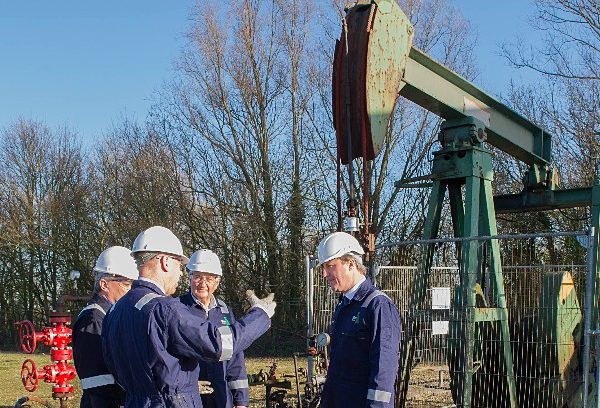
The production of an equivalent gas that is renewable and low-carbon is possible and it is sitting just waiting to be used. If financial uncertainties were removed to allow rapid development of the UK's potential for more anaerobic digestion and biogas production, the production of this gas can be accelerated.
The technology is available now. Many people want to develop the needed biogas plants. A small change in UK government policy on incentives can release the potential.
ADBA November 2019 Press Release:
Support biogas as a viable, renewable alternative to shale gas, says trade body in light of Oil and Gas Authority report
- The UK government needs to look at alternatives following the suspension of fracking as recommended by the Oil and Gas Authority.
- Biogas offers an environmentally friendly alternative that has the potential to meet nearly 20% of the UK’s current domestic gas needs, reduce greenhouse gas emissions by 5% and create 30,000 new jobs.
Government investment into food waste collection, infrastructure, and innovation is needed to put the UK at the heart of this growing global sector.
Last week, the UK Government announced an indefinite suspension of fracking for shale gas in England following a report from the Oil and Gas Authority into the seismic impact of the technology. This follows ongoing suspensions in Scotland and Wales.
As a result, the Government has to find alternative sources of natural gas to meet the UK's energy needs, whilst also seeking to achieve its Net Zero emissions targets by 2050. Look no further than biogas, says the UK Anaerobic Digestion and Bioresources Association (ADBA).
Biogas is produced from the natural process of organic matter such as food waste, wastewater, sewage, slurries, and agricultural waste breaking down. The circular nature of this process called anaerobic digestion (AD), means that harmful gases that would otherwise be emitted by those organic wastes in landfills or incinerators are captured and a new renewable energy source is generated instead.
AD is a ready-to-use technology that helps cut emissions in the hardest-to-decarbonize sectors of heat, transport, and agriculture. Upgraded to biomethane, biogas can be injected into the grid with no changes needed to the existing gas infrastructure and used as green fuel for heavy goods vehicles and buses.
Meanwhile, the organic residue produced, digestate, is a nutrient-rich biofertilizer that can restore depleted soils and replace artificial, manufactured fertilisers. By displacing fossil gas and artificial fertilisers from heat, transport, and farming, and preventing methane emissions created by untreated organic waste, the UK AD and biogas industry already reduces the UK annual greenhouse gas emissions by 1%.
In the last decade, the sector has grown 350% and is now employing over 3,500 people. It however still needs policy incentives and investment to reach its full potential. In 2019, 650 AD plants across the UK produced 10.7TWh of energy.
Over the next 10 years, ADBA anticipates that in addition to reducing emissions by 22.5m tonnes of CO2 -equivalent every year (circa 5% of total UK greenhouse gases emissions), it has the potential to meet nearly 20% of current domestic gas demand, providing greater energy security, and to provide 30,000 new green jobs, largely in rural areas.
The sector has also developed world-leading expertise which gives the UK a real opportunity to be at the heart of a growing global biogas industry.
Charlotte Morton, ADBA Chief Executive, said:
“If the investment currently put into shale gas extraction was redirected to biogas production, we could make a major leap forward in achieving Net Zero emissions targets whilst helping meet the UK's energy needs and developing an invaluable asset for exports.
The Government's Resources and Waste Strategy was encouraging in its commitment to collect more food waste, but we need to ensure that this feedstock, and all other available feedstock, is then treated through AD.
We need policy and financial commitment towards developing AD infrastructure and supporting technical innovation to deliver a strong biogas industry in the UK that will sustain the economy for generations to come, whilst addressing the climate emergency that we face.”
In a nutshell, the debate about shale gas advantages and disadvantages should be considered irrelevant when compared wit the benefits of renewable energy from biogas.
– ENDS –
ADBA’s vision is to see the full potential of the UK AD industry realised so it can help the UK achieve its emissions targets and other policy goals, creating a truly circular economy.
[First published Novermber 2019.]

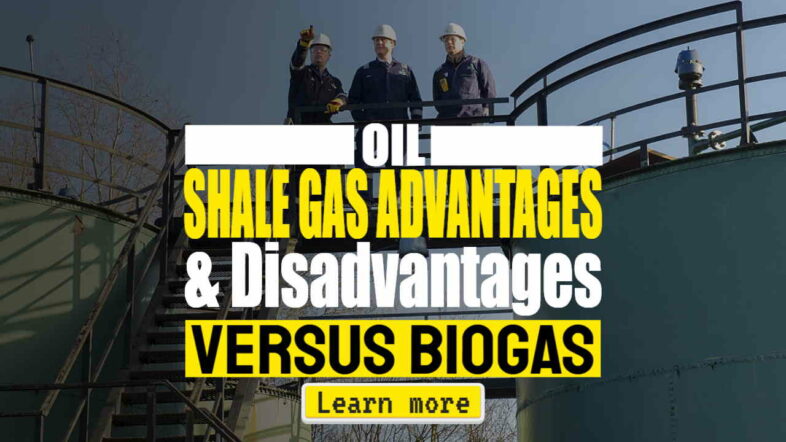
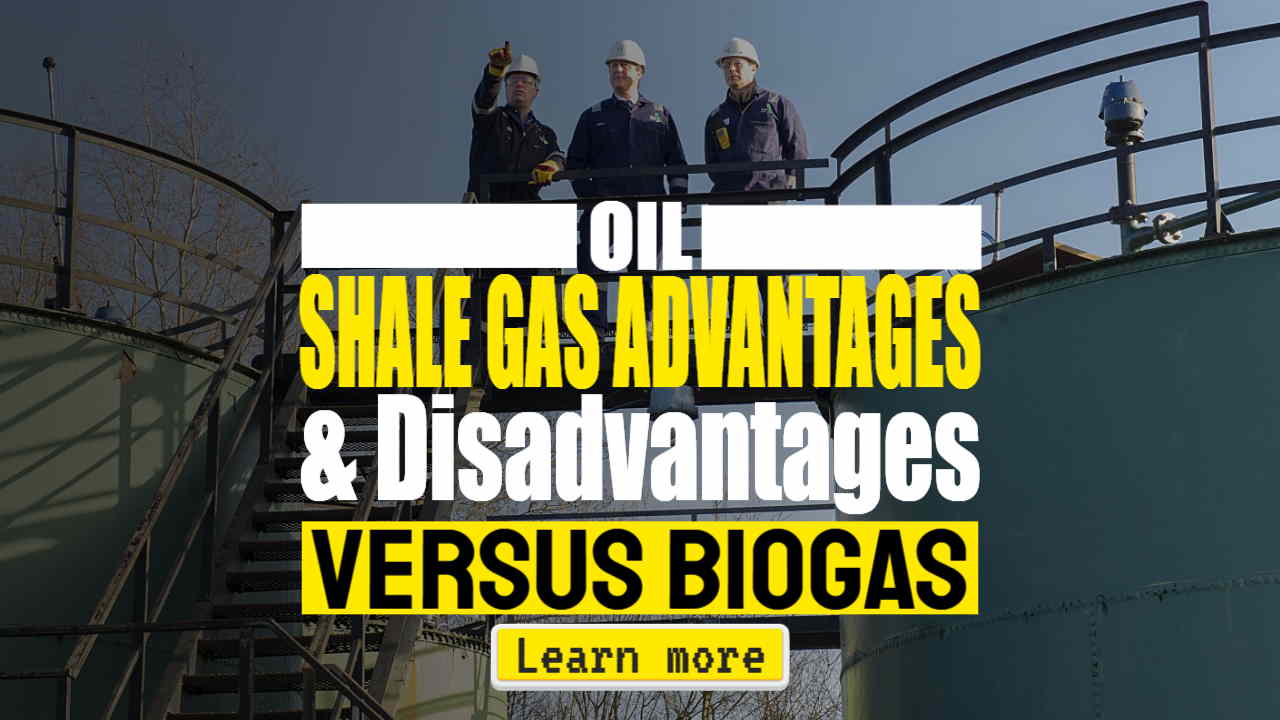
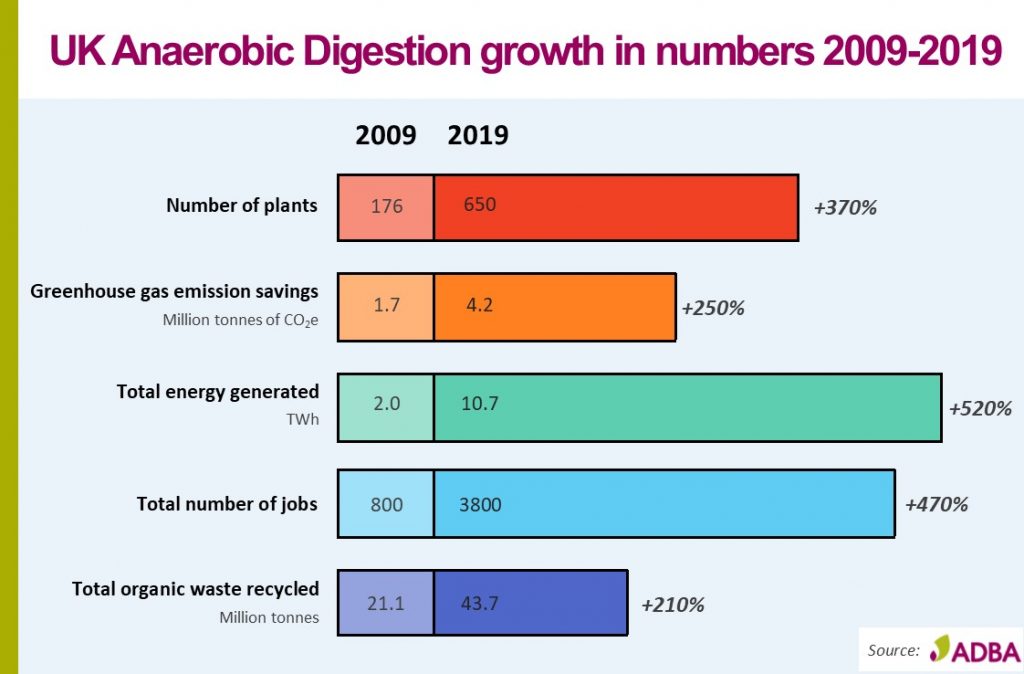
 The Government's Resources and Waste Strategy was encouraging in its commitment to
The Government's Resources and Waste Strategy was encouraging in its commitment to 
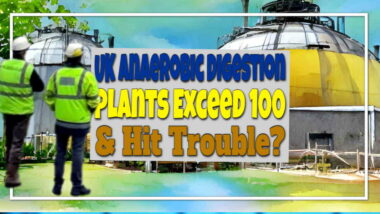

Great breakdown of the pros and cons for both shale gas and biogas!
You’ve really made it clear that the decision isn’t as black and white as some might think. While the abundance of shale gas can’t be ignored, the environmental risks and the fact that it’s a finite resource make it less appealing in the long run.
On the other hand, biogas, although not perfect, certainly holds promise due to its sustainability and the fact that it’s a renewable source of energy. Indeed, having options is always good, but it’s equally important to consider the long-term effects on our environment.
Thanks for sharing such an enlightening comparison.
Well, oil shale gas, it’s a double-edged sword, isn’t it? On one hand, it’s plentiful, with enough to keep the lights on for a century in the USA alone. But, and here’s the rub, fracking, the method to get at it, comes with its own baggage. Earthquakes, tainted water, and methane in the atmosphere, not to mention it won’t last forever. So, it’s a real “weighing the scales” situation here.
Biogas might be green energy solution with a sustainable future, but careful planning is key to avoid unintended consequences.